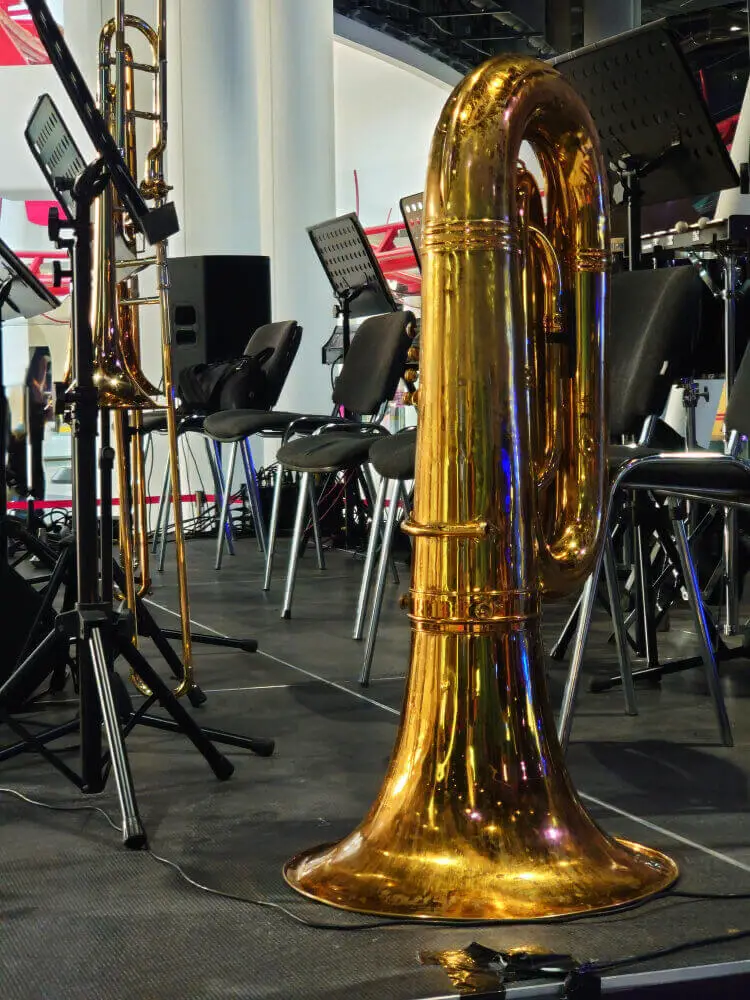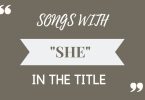Are tubas good? Yes, they are good.
This is a comprehensive guide to finding and purchasing used tubas. A used tuba can be the perfect choice for anyone looking for quality at a cheap price.
The Advantages and Disadvantages of Buying a used tuba
Pros of Buying a used tuba
Buying a used tuba offers the advantage of having already been played extensively. If the tuba served someone else for a long time, it’s a good bet it’ll do the same for you.
Think of the tuba as a player’s horn rather than a “second-hand tuba.” If you’re looking to buy a used tuba, you’ll most likely find the Yamaha YBB 641 Professional Rotary Tuba, which is often considered the gold standard for tuba models. Tuba players have been playing these instruments for decades, which speaks volumes about their instrument’s quality and ease of use.
Disadvantages of Buying a Used tuba
Some disadvantages of purchasing a used instrument come when you buy the tuba without first trying it out. Many tubas shops allow you to play it for a short length of time in order to acquire a feel for the instrument and see if you like it or not.
It’s also more difficult to tell how good it will be, compared to getting a new one that hasn’t been thoroughly used or tested and that provides more ease in its current state.
Purchasing a tuba online (especially a secondhand one) without first inspecting it could be more dangerous than you think. Another drawback of used tuba is that they may be older and so more likely to need repairs in the future.
What you should look out for when buying a used tuba
- It’s advisable to stick with tubas that haven’t been refurbished. In other words, you want to make sure that this hasn’t been trashed at some point and then reconstructed or repaired in a way that isn’t typical of regular maintenance and adjustments.
- Check for any dents. An excellent technique to check this is to turn the tuba on its side and carefully inspect the surface of the tuba to ensure that it is smooth and even. Any dent on the tuba body that is less than 5mm in width is not likely to be a concern.
- Be cautious when acquiring a tuba that has been refinished or relaquered, since the finish may have been stripped during the process, which can have a negative affect on the sound. Some signs that a tuba has been re-laquered are scratches that show a different color than the rest of the tuba, a very shiny finish for a tuba that’s older than it looks, and fuzzed engravings and serial number.
- If you notice an awful odor when you open the case, it’s likely that some of the instrument’s key elements have begun to decay. Green discoloration is also an indication that something is wrong.
- Avoid tubas with exposed soldering as well. Solder is a substance that melts metal together and can result in globby splotches.
- If you’re in a tuba store, have the salesperson insert a fluorescent light stick into the instrument to check for leaky pads.
- Bring a tuba-playing friend along to receive their feedback on how it sounds, as it’s easy to lose perspective when trying out a variety of instruments.
- Bring your present tuba to compare to your potential horn.
Do used tubas sound better
Whatever horn, mouthpiece you use, the truth is that you sound a lot like…you to an outside listener. It’s not that your gear doesn’t have an impact on your sound; rather, having the skills in both your body and mind to sound amazing on any setup is the only way to have the biggest and richest sound possible.
What are the best places to look for used tubas?
-
Music Shop
The best place to buy a used tuba is from a store where you can actually try it out before you buy it. That should be your top priority; even if it requires a longer journey, it may be well worth it.
Most major cities have a few tuba and brass instrument stores. Guitar Center or Sam Ash could be good places to look for newer tuba models.
When purchasing a new tuba, I would follow the same process as when purchasing an old one. In terms of price, however, most tuba stores will use the MSRP (Manufacturer’s Suggested Retail Price) as a benchmark for comparison.
-
Finding Used tubas Online – Best Places to Shop for tubas
You have plenty of possibilities online if you don’t have access to a music store or the ability to verify the genuine condition of a secondhand instrument in person. As an alternative to searching for used tubas on sites like Reverb.com, eBay, Craigslist, or Facebook Marketplaces, you may check out specific tuba-selling websites like which all sell instruments.
When was it last overhauled?
Finally, inquire as to when it was last overhauled. As part of the process of tuba overhauling, all valves are replaced; the instrument is cleaned, oiled, adjusted, and tuned to its best ability. Some repair professionals aim to make the tuba sound better than it did when it was new.
If the last overhaul was more than ten years ago, that’s a terrible indicator, since you’ll almost certainly need to have it done again.
So, let’s say the pricing is comparable to similar models online, there’s a decent amount of lacquer, there aren’t many scratches or dents, and the tuba is overall very playable.
As I stated in the beginning, this is a significant investment that should be carefully considered before making a purchase. Because it’s difficult to compile a comprehensive pricing guide for pre-owned tubas, I’m hoping this approach will be the most useful.
Do Used tubas Cost Much?
The price of a used tuba can go anywhere from $2,000 to $5,000, depending on the type. This tuba’s general playability is enhanced by the fact that it has a substantial amount of lacquer and hence has few scratches.
Final Thoughts
Above all, try out tubas when you have the opportunity. The second step is to compare the price to other online retailers to make sure it is reasonable. Finally, enjoy the process. I’ve gone through it a few times now, and it’s intriguing.
Be cautious and considerate, as you will be using this instrument frequently and for an extended period of time. If possible, inquire at the tuba shop about taking the tuba home and bringing it to a rehearsal or even a performance.
Get a feel for how it will feel to play it at home and in a professional situation. Make sure you’re receiving the greatest bargain by being as thorough as possible. You don’t want any “what if…” or “maybe I should’ve…” ideas to linger in your mind later.








